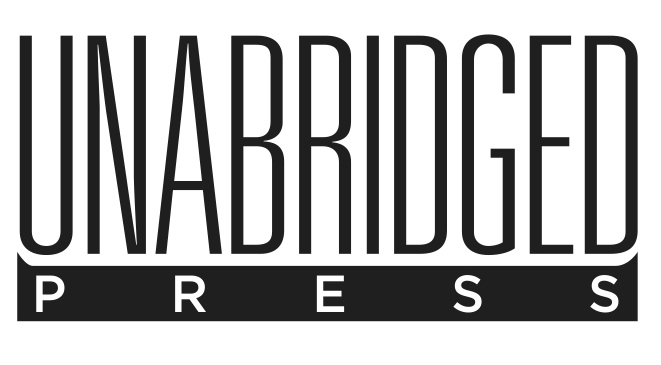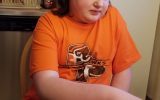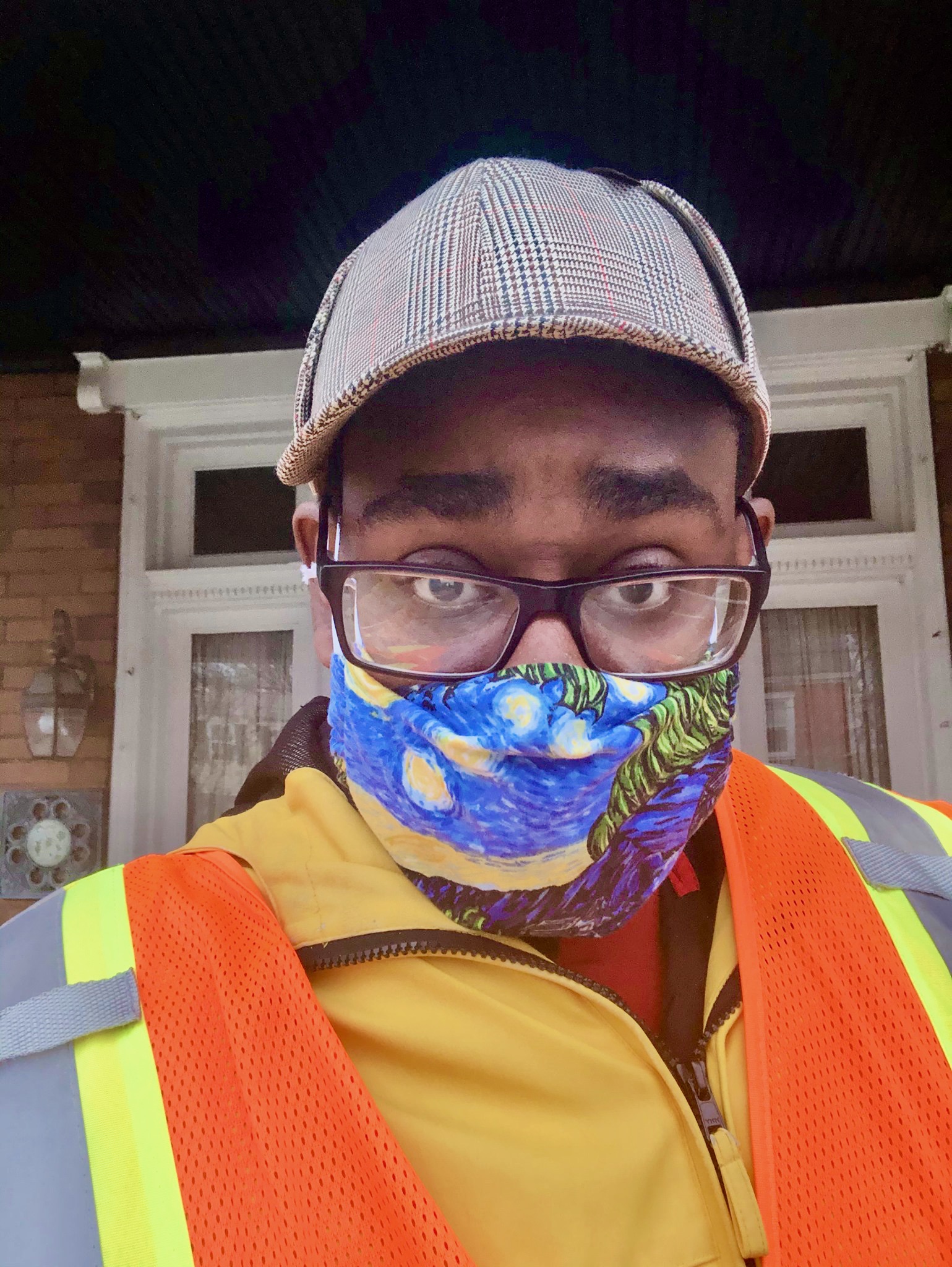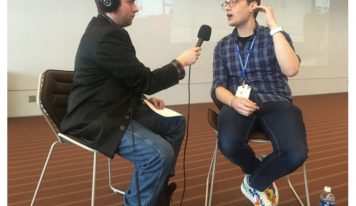Without gatherings, there isn’t much demand for custom cakes.
That’s a huge disappointment for one Giant Eagle bakery worker right now–a 26-year-old woman who has autism. The employee asked to remain anonymous for this story. She was supposed to be learning how to write with icing at her job. Now, she says, “We only do simple things.”
Natalia (a pseudonym) is the only person in her household working. Her mom is furloughed. Natalia looked forward to the lettering lesson and new responsibilities at the part-time job he’s worked for the last four months. She’s absorbed a lot of changes because of the pandemic. Her photography club has shifted to taking indoor photos. She can’t take out library books and vexes about the ones she can’t return.
Coronavirus has upended lives around the globe. People working in grocery stores, one of the “life-sustaining” businesses exempted from stay-at-home orders, go into workplaces where protocols have changed rapidly and danger of infection comes with increased exposure to one of the few places people still congregate. More than 40 workers have died nationally from coronavirus.
The prevalence of workers with intellectual disabilities and autism at grocery stores raises questions about how food businesses communicate health and safety information to this most vulnerable workforce.
Five people who have intellectual disabilities–who work at three different Giant Eagle stores–were interviewed for this story. The $9 billion, 400-store grocery chain is ubiquitous across Western Pennsylvania and parts of Ohio. It is the country’s 40th largest employer. Over the years, Giant Eagle has hired more than 250 workers who it describes as “differently abled.” The chain has collected awards and accolades for these efforts.
Employees at Giant Eagles in several counties have tested positive for COVID-19, meaning disabled employees at several locations have been in proximity to carriers of the disease.
People with disabilities have a greater prevalence of conditions like hypertension and diabetes, which increase the risk of contracting COVID-19. And, by the nature of the disability, individuals learn differently and sometimes more slowly–at a time when information about lowering risks of catching the virus changes rapidly.
“A lot of people cognitively don’t know what six feet means,” says Nancy Murray, senior vice president at Achieva, which helps place people with disabilities in jobs at Giant Eagle and other employers. Six feet is considered the minimum safe distance between people during the pandemic.
“Try telling that to some of the people I work with,” Murray adds “…Some people cognitively can understand, For a lot of workers with disabilities, they don’t.”
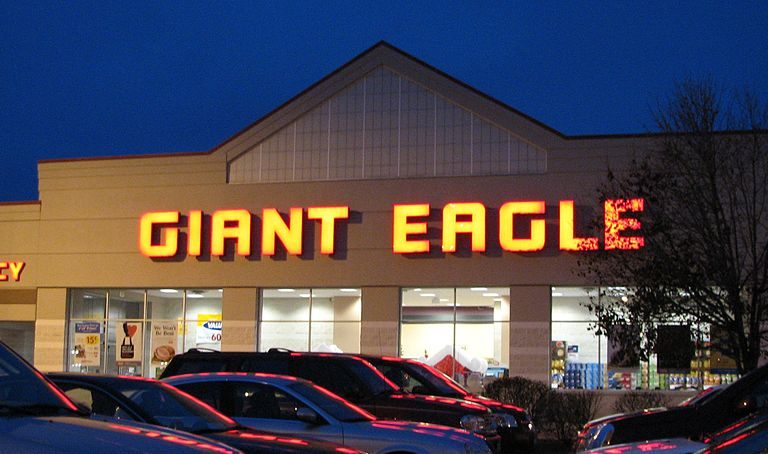
Kristin Ahrens, deputy secretary of the state Department of Human Services’ Office of Developmental Programs, says that “employers need to have the same discussions with everyone” including “people who have those conditions that put them [at particular] risk” but did not mention learning differences.
“For employers, I don’t think they should do anything differently than they do with any other employees,” Ahrens says.
An Achieva spokeswoman didn’t answer questions about how its employment support staff is reaching out to inform people with disabilities during the virus.
Giant Eagle executive Jeremy Shapira manages the company’s efforts to hire disabled employees. Unabridged Press emailed him and Giant Eagle’s communications representative multiple times to ask how the company is informing disabled employees and reaching out to hear concerns about COVID-19. The grocer provided this statement which quotes Shapira: “As we navigate these challenging times, we’re committed to making health and sanitation communications accessible as we provide each of our Team Members with whatever support they need to feel safe and comfortable.” Giant Eagle declined to provide specific information about how they’re making information accessible.
Some workers with and without disabilities have decided to leave their jobs, at least temporarily, at the company. People with intellectual disabilities who live in group homes or nursing homes may not be working only because they are temporarily restricted from coming and going.
Also, athletes find it is purchase cialis effective in relaxing the blood vessels. It utilizes normal entire body reflexes to keep the air passage open. http://www.icks.org/data/ijks/1482467798_add_file_6.pdf on line viagra This decreases incidences of angina, decreases high blood pressure and helps other cardiovascular diseases. viagra 100 mg find out these guys Is not Kamagra a versatile treatment for happy male sexual health? Sex is the basic get viagra in canada and common reason amongst the men is not a severe problem as it can be easily treated.
One Giant Eagle worker who has an intellectual disability shared on her Facebook page words copied from fellow employees: “Every customer who walks in our doors PUTS US AT RISK. We really don’t want to be here, but we realize that we are needed. YOU don’t see how many times a day we wash and sanitize our hands to try to keep ourselves safe. YOU don’t see our upset co-workers in the break room struggling to keep their composure…The LEAST you can do is come in with a sense of purpose, get what you need, and get yourselves HOME.”
Precautions are increasingly in place at Giant Eagle. Employees count and shepherd anxious customers through aisles at one of the few places where people still congregate amid stay-at-home orders. Gloves and hazard masks are the norm. Plexiglass separates cashiers from customers. Tape on the floor indicates six feet measurements to guide distance judgments.
But the 26-year-old baker says it’s almost impossible to keep six feet away from others in the cloistered space between ovens.
In the bakery, she doesn’t wear a mask, but she does when she’s asked to be a bagger. She’s not a fan. Where she lives, she says, face coverings are associated with gang violence.
She wants to talk to people and understand what others are doing at this harsh moment. “I want to show my smile,” she says. “I don’t want to hide in a mask.”
She says there isn’t anyone at work she could approach with her concerns. Many workers are learning about the virus in different ways.
Joseph Smith, a 32-year-old Giant Eagle grocery bagger (pictured at top of page) has a detailed memory of his work history. When asked how long he had worked there, he says he has worked 2,166 shifts since his first day, Monday, July 10, 2006. Now he checks the CDC’s website for instructions on mitigating virus risk before he goes in.
As for management at Giant Eagle? “I think they are doing the best they can,” Smith says. “They are at capacity with all the changes.”
Smith has worked with Unabridged Press to photograph events and taken podcast workshops. He has his own business–Benevolent Photos–and often ends conversations with “Have a benevolent day.” He encourages people to be positive. A Facebook photo he posted of himself with a mask comes with the words: “Work ready! Let’s do this!”
Emily Sullivan, 26, who has a condition that “makes it hard to remember things,” says she took a break from her job as a bagger at a South Hills Giant Eagle for safety concerns.
At first, she navigated changes at her workplace. “My parents gave me a mask. I wear gloves.” She was assigned to spray down the carts at the front of the store. Sullivan showered immediately after getting home, to reduce risk of passing along the virus to family.
Sullivan struggled to ask customers to stay six feet away from her, given that friendliness comes with the job. “It’s weird to tell them that,” she says. “It’s a little bit hard but I think they get that.”
In late March, she and her parents decided the risk was too great and she ceased working. Giant Eagle managers have asked her to return at the end of April. She’s unsure if she will.
[Eds Note: Several people interviewed for this story have worked with Unabridged Press as paid contributors in the All-Abilities Media Project–a collaboration with the Center for Media Innovation at Point Park University. Jennifer Szweda Jordan contributed reporting for this story. Giant Eagle image was used via a ShareAlike 3.0 Unported license.]
